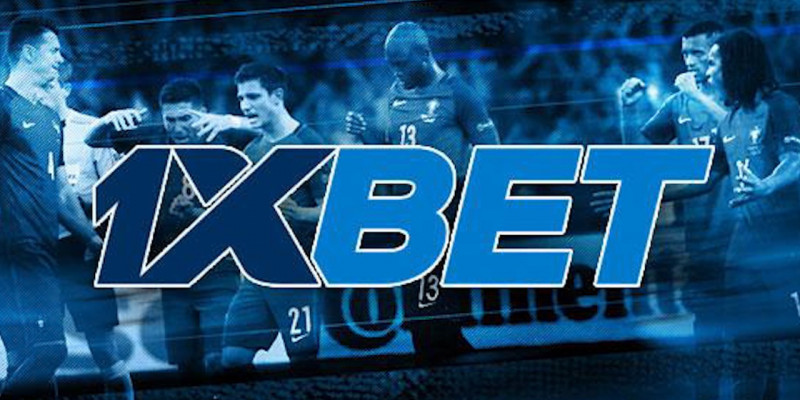
For players and newcomers exploring competitive gaming odds, understanding platforms like esports betting 1xbet app can be part of a broader approach to safe and informed esports betting.
Esports betting has grown from a niche hobby into a global market that mirrors traditional sports wagering in size and complexity. The landscape includes major titles such as Counter-Strike: Global Offensive, Dota 2, League of Legends, Valorant, and many more. Each game brings distinct dynamics: round-based formats, best-of series, draft phases, and hero or map pools all influence how odds are set and how value can be found. To bet successfully, you need both game knowledge and an understanding of betting principles.
Start with markets and odds. Common markets include match winner, correct score, maps handicap, over/under rounds, first blood, and in-play outcomes. Unlike traditional sports, some esports markets are driven by in-game mechanics — hero drafts in Dota 2 or champion picks and bans in League of Legends can drastically sway a match before a single fight. Odds reflect bookmakers’ assessments of probability but also their need to balance books; finding discrepancies between market prices and your own evaluation is where value betting emerges.
Research is your foundation. Follow rosters, coaching changes, patch notes, and practice results. Professional teams scrim (practice) constantly and adapt to patches; a balance patch that nerfs a core strategy can drop a team’s win probability. Watch VODs and highlight reels to spot strategic trends, and use statistical sites to track head-to-head records, map pools, and recent form. Pay attention to lineups: substitute players, visa issues, or illness can dramatically alter expected outcomes.
Bankroll management is critical. Treat your esports betting funds as a separate bankroll and establish a staking plan. Common approaches include fixed-percentage staking (betting a small percentage of your bankroll per wager) or unit-based systems. Avoid chasing losses and never stake amounts you cannot afford to lose. Volatility in esports can be higher than in mainstream sports because small strategic shifts or single-player performances can trigger big swings.

Value betting beats pure prediction. If your model or assessment gives a team a 60% chance to win but the bookmaker’s odds imply 50%, the wager carries positive expected value. You can build simple predictive models using Elo-like ratings, recent form adjustments, and matchup-specific modifiers. More advanced bettors incorporate Monte Carlo simulations or machine learning, but even straightforward approaches—weighted recent form and map advantage—can uncover mispriced markets.
Live betting in esports opens additional opportunities, but requires discipline. In-play odds react to momentum, team compositions, and mid-game events. For instance, a rapid early advantage in CS:GO or an early Roshan in Dota 2 might swing probabilities abruptly. Successful live bettors watch the stream (or at least a reliable feed) and understand power spikes: item timings, ultimate abilities, and team fight synergies. Fast decision-making and pre-defined rules (e.g., only bet live when a team is ahead by certain metrics) help reduce impulsive losses.
Game-specific considerations matter. In CS:GO, map pool and side win rates (CT vs T) influence handicaps and total rounds markets. In Dota 2, draft superiority and Roshan control are crucial; a team that secures early towers and map control often transforms leads into wins. In League of Legends, objectives like Baron and Dragon scaling affect late-game probability; teams that excel at objective control can overturn deficits. Learn the key metrics for each title and use them to inform your bets.
Shop for the best odds. Different bookmakers and betting exchanges offer materially different prices, especially on niche markets. Use several accounts to compare odds and take the best available line. Betting exchanges allow you to lay bets or match other bettors and can be a source of better value if liquidity exists. Promotions and bonuses can add value but read terms carefully—wagering requirements and restricted markets might limit usefulness for serious bettors.
Keep records. Track every bet: stake, odds, market, match, reason, and outcome. Over time, this database reveals strengths and weaknesses in your process. Are you better at predicting underdog upsets in a particular game? Do live bets on a specific league underperform your pre-match wagers? Data-driven reflection is one of the fastest ways to improve.

Mind the psychological traps. Confirmation bias (seeking evidence that supports your pick), recency bias (overweighting the latest result), and tilt (emotional betting after a loss) can erode long-term profitability. Use objective criteria for bet entry and exit. Limit the number of concurrent wagers to prevent overexposure and set loss limits to preserve capital.
Regulation and integrity are essential topics in esports. Match-fixing and cheating incidents have occurred, and regulated bookmakers comply with integrity monitoring bodies and refuse bets on suspicious fixtures. Prefer reputable operators and avoid opaque markets on low-tier events where integrity risks are higher.
Responsible gambling should be a priority. Set deposit and stake limits, take breaks, and seek help if betting becomes problematic. Esports audiences skew younger, so awareness and education about risks are crucial. Many regions offer tools and organizations that provide support for gambling-related harm—use them proactively.
Finally, diversify your approach. Blend quantitative models with qualitative scouting, focus on markets you understand well, and adapt your strategies as games evolve. Esports betting is dynamic: patches, meta shifts, and roster changes continuously reshape value. Patience, disciplined bankroll management, and relentless learning make the difference between recreational fun and a more systematic, potentially profitable approach.
Esports betting offers excitement and challenge in equal measure. Treat it like a craft: gather information, test hypotheses, manage risk, and refine your methods. With a sound process and responsible habits, you can enjoy the competitive spectacle while approaching wagering with respect for both opportunity and danger.

